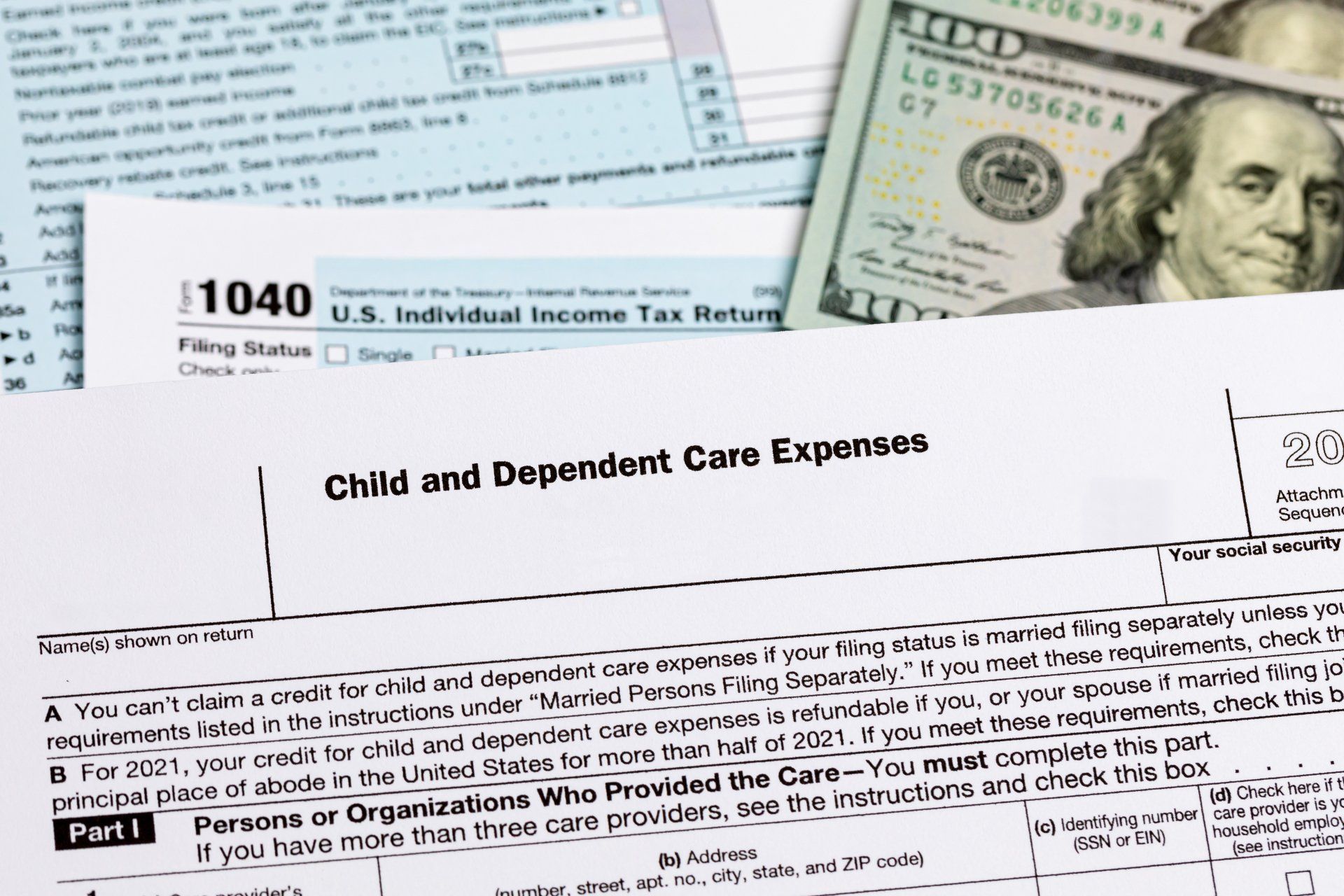Attorneys at Law
Blog Layout
What Really Happens When you file Bankruptcy
Brian D. Bailey Esq. • November 4, 2021
This is a subtitle for your new post

Bankruptcy is not the end of the world
The differences between chapter 7, 13, and 11
In general, people file for bankruptcy only as a last resort, when there’s no way to meet their debt obligations. A popular assumption is that bankruptcy is just for people who take on too much credit card debt, and while this can be true, people also file bankruptcy after suffering a major, unexpected financial blow—like a lawsuit or an unexpected illness.
Another misconception is thinking that bankruptcy wipes out all of your debt obligations. That’s not the case. You still have to pay, and how you’ll pay depends on what kind of bankruptcy you file: chapter 7, chapter 13, or chapter 11. There are other types of bankruptcies, too (chapter 12 is for farmers and fishermen, for example), but these three are the most common.
With chapter 7,
you may have to liquidate certain assets (like a car or a second home) to pay off at least some of the debt. Most of your assets are probably exempt from this requirement, but it depends on your state, your financial situation, and whether or not that asset is deemed “essential.” You have to meet certain eligibility requirements to file chapter 7, and having a lower-than-average income is perhaps the most important one.
With chapter 13,
you agree to pay off your debts within the next three to five years in the form of a payment plan, but you get to keep your assets. The good news is that some of those debts will likely be discharged. You have to qualify, though, and that means your secured debts (debt backed by collateral, like your house or car) can’t be more than $1,184,200 and your unsecured debts cannot be more than $394,725.
Chapter 11
bankruptcy works kind of like chapter 13, in that you keep your assets, but it’s typically reserved for businesses. Businesses can file for chapter 7 bankruptcy, too, but the liquidation of assets can be a business-killing move, so chapter 11 is usually a more attractive option. That said, sometimes higher income individuals will file a chapter 11 because they’re outside the debt limits for Chapter 13. The bottom line is that you keep your stuff with chapter 11, but it requires a plan to pay off at least some of the debt owed, or get it forgiven.
What happens when you file
When you file for bankruptcy, you get an automatic stay, which puts a block on your debt. Such stays prevent creditors and collections agencies from pursuing debtors for amounts owed. While the stay is in place, your wages can’t be garnished and creditors can’t go after any secured assets.
Ironically, bankruptcy isn’t free. The filing fee alone is over $300 for chapters 7 and 13. And then there are the attorney fees. You can file without a lawyer, but it’s not recommended, since bankruptcy laws are difficult to navigate. Attorney fees for chapter 7 average around $1,500, while chapter 13 fees tend to be in the $3,000-$4,000 range. As with many things requiring an attorney, the more complex your situation, the more you’ll pay.
There are ways to reduce the legal costs of filing for bankruptcy. Nonprofit Upsolve, for one, helps you generate your bankruptcy filing forms for free if your case is a simple one. Or your local legal aid society may be able to connect you with low-cost legal services.
As part of the bankruptcy process, you’ll also have to take a class or two. The government requires individuals to get credit counseling within 180 days before filing, and you also have to take a debtor education course if you want your debts discharged.
A couple of weeks after filing, you’ll have to attend a “creditors meeting,” which is basically what it sounds like: a court meeting between you, your bankruptcy trustee, and any creditors who want to attend. They’ll all ask you questions about your financial situation and your decision to file bankruptcy.
Do your assets get liquidated with chapter 7?
In 90-95% of chapter 7 cases the debtors don’t have to liquidate their property (unless it’s collateral) because it’s usually exempt or it’s just not worth it. Let me explain:
If the property isn’t worth very much or would be cumbersome for the trustee to sell, the trustee may “abandon” the property — which means that you get to keep it, even though it is nonexempt... Most property owned by Chapter 7 debtors is either exempt or is essentially worthless for purposes of raising money for the creditors. As a result, few debtors end up having to surrender any property, unless it is collateral for a secured debt…
After the creditors meeting, your trustee will figure out whether or not to liquidate your stuff. If it does get liquidated, that means you’ll have to either surrender it or fork over its equivalent cash value to pay back your debt.
You get a payment plan with chapter 13
With chapter 13, you must follow a plan to pay off your debts, and some of them have to be paid in full. These debts are “priority debts,” and they include alimony, child support, tax obligations, and wages you owe to employees.
Your plan is based on how much you owe and what your income looks like, and will include specific instructions on how much you have to pay and when you have to pay it.
What happens to your credit and your debt
Your credit score will plummet after any bankruptcy filing. FICO notes that the more accounts are involved in your bankruptcy filing, the greater an impact you’ll see to your score. In general, a chapter 7 bankruptcy will remain on your credit report for 10 years, and chapter 13 stays on for seven.
After bankruptcy is all said and done, most debts are discharged—but not all of them. In some cases, student loans can be discharged after a bankruptcy, but you have to pass a federal test for hardship.
Other difficult-to-discharge debts include:
Tax debts
Alimony and child support
Divorce-related debts, including property settlement debts
Bankruptcy is usually a desperate remedy to a helpless situation. But knowing how it works and what to expect can help you better navigate what the process.

By Brian D. Bailey
•
July 15, 2022
https://www.youtube.com/watch?v=86DwHBCoLp0#t=207m27s If the link doesn't automatically take to to the video . Please cut & Paste to you browser Hey everyone out there now you can see us during our appearances on the Joe Show. Click on the link here to see why my momma always said I had a face made for radio. And for my law school peeps listen close for a painful law school memory when we discuss the "Absence of Malice"

By Brian D. Bailey Esq.
•
June 28, 2022
Parents who are divorced, separated, never married or live apart and who share custody of a child with an ex-spouse or ex-partner need to understand the specific rules about who may be eligible to claim the child for tax purposes. This can make filing taxes easier for both parents and avoid errors that may lead to processing delays or costly tax mistakes. Only one person may be eligible to claim the qualifying child as a dependent. Only one person can claim the tax benefits related to a dependent child who meets the qualifying child rules. Parents can’t share or split up the tax benefits for their child on their respective tax returns. It’s important that each parent understands who will claim their child on their tax return. If two people claim the same child on different tax returns, it will slow down processing time while the IRS determines which parent’s claim takes priority. Custodial parents generally claim the qualifying child as a dependent on their return. The custodial parent is the parent with whom the child lived for the greater number of nights during the year. The other parent is the noncustodial parent. In most cases, because of the residency test, the custodial parent claims the child on their tax return. If the child lived with each parent for an equal number of nights during the year, the custodial parent is the parent with the higher adjusted gross income. Tie-breaker rules may apply if the child is a qualifying child of more than one person. Although the child may meet the conditions to be a qualifying child of either parent, only one person can actually claim the child as a qualifying child, provided the taxpayer is eligible. People should carefully read Publication 504, Divorced or Separated Individuals to understand who is eligible to claim a qualifying child. Noncustodial parents may be eligible to claim a qualifying child. Special rules apply for a child to be treated as a qualifying child of the noncustodial parent. The custodial parent can release the dependency exemption and sign a written declaration or Form 8332, Release/Revocation of Release of Claim to Exemption for Child by Custodial Parent for the noncustodial parent to submit with their tax return. This also applies to some tax benefits, including the child tax credit, additional child tax credit, and credit for other dependents. It doesn’t apply to other tax benefits, such as the earned income credit, dependent care credit or head of household filing status. For More information: Check out IRS Publication 501, Dependents, Standard Deduction, and Filing Information Whom May I Claim as a Dependent? If you have questions or need help navigating which parent gets to claim the children for tax purposes. Feel free to Give us a call at 859-236-8888.

By Brian D. Bailey Esq.
•
June 17, 2022
It is with mixed emotions that we announce our very own justin Johnson has decided to take a position working as Assistant Commonwealth attorney for the 50th Judicial Circuit. We are sad to see him go but are comforted with the fact that we know he will bring his integrity and brilliance to this next chapter of his life and that maybe in some small way we contributed to that. Also we are proud to know that he will in a very real way be carrying on the tradition of this firm's founder Hon. George M McClure III by serving this area while ensuring both the victims and accused receive justice and fair play.

By Brian D. Bailey Esq.
•
May 31, 2022
Both Patrick & Myself come from a long line of men and women who have bravely & honorably served this country. Both of our fathers George M McClure III & John L Bailey. Our Grandfather’s Dr. George M McClure Jr., Clarence E. Bailey and Claude L. Stacey. As well as many of our aunts, uncles and cousins have all bravely and honorably served this country some of them came home to take there place in society never really discussing their service nor asking for any special treatment because of it. Some came home in a box. draped in a flag, having paid the ultimate sacrifice. I never had the honor of serving myself. I had intended to serve. I even made the trip from Rockford Illinois to Great Lakes Naval base to take the ASFAB which I actually did very well on. However the day before I was going to sign my enlistment papers my father sat me down and said these words to me that forever changed the course of my life. He said “Son our family has done its fair share for King & Country go to college” I took my dad’s advice and I have honestly had a life that is greater than I could have ever imagined. But I have always felt a little guilty that I didn’t serve like most of the men in my family chose to do. Memorial Day is always bitter sweet for me, because I realize that I am in a very personal way the recipient of the sacrifices made by Generations of my family that served sacrificed and died so that I wouldn’t have too. I know I’m not the only one who has benefited from that type of sacrifice I know many of you out there reading this have stories that are very similar to mine. So tomorrow while we are all enjoying our hot dogs, hamburgers and mom’s apple pie let’s all take a moment to remember the ones that sacrificed so that we wouldn’t have too. Have a Happy and Thankful Memorial Day. ---- Brian
This Is An Advertisement
Area of Service
Boyle, Mercer, Lincoln, Garrard, Casey, Marion, Rockcastle, Washington, Anderson, and Jessamine Counties
Business Hours:
- Mon - Fri
- -
- Sat - Sun
- Closed
Content, including images, displayed on this website is protected by copyright laws. Downloading, republication, retransmission or reproduction of content on this website is strictly prohibited. Terms of Use
| Privacy Policy










